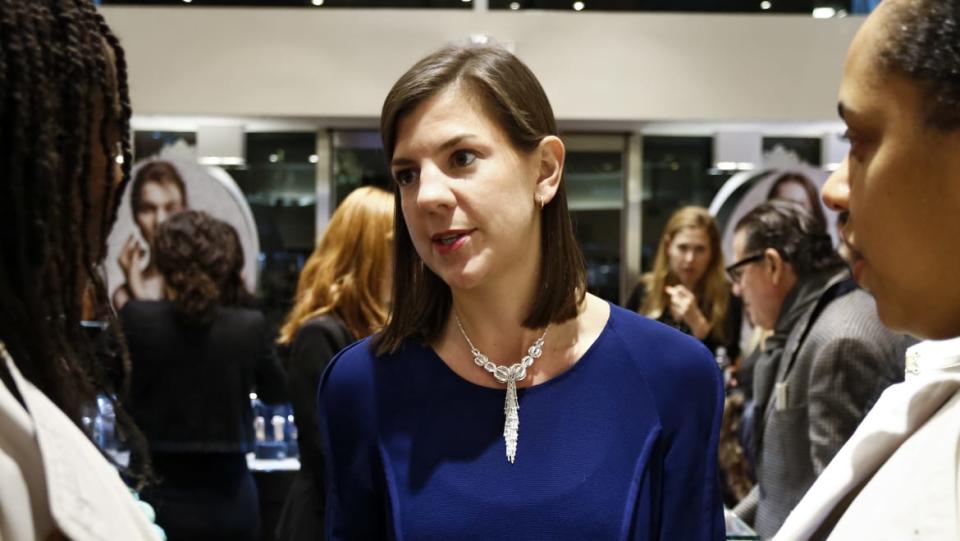NYMag’s Financial Columnist Scammed Out of $50K in Elaborate Con

New York magazine’s financial columnist Charlotte Cowles has written about everything from how people could get their bills lowered to managing their credit card debt. Her Thursday report, however, highlights how even the smartest financial minds can be deceived.
Cowles admitted in her column how she put “$50,000 in a shoe box and handed it to a stranger,” a mystifying tale that explained how a scheme involving fake Amazon, Federal Trade Commission, and CIA agents led Cowles to believe she was under investigation for money laundering.
To survive the imminent freezing of her assets and Social Security number while she was under investigation, she wrote, the schemers told her to withdraw $50,000 from her bank account. She would then deliver that money to an agent who would take it to the Treasury Department, which would then mail her a check for that amount.
“Now I know this was all a scam—a cruel and violating one but painfully obvious in retrospect,” Cowles wrote. “Here’s what I can’t figure out: Why didn’t I just hang up and call 911? Why didn’t I text my husband, or my brother (a lawyer), or my best friend (also a lawyer), or my parents, or one of the many other people who would have helped me? Why did I hand over all that money—the contents of my savings account, strictly for emergencies—without a bigger fight?”
Cowles’ tale included a detailed account of that began last Halloween, when she received a phone call from a woman claiming to be an Amazon employee. The employee told her that an Amazon account in Cowles’ name had spent $8,000 on iPads and Macbooks. After Cowles told her she had not made such purchases—and when none showed up when she checked her account—she was then transferred to an “FTC investigator” for more information.
The web the “investigator” spun was larger than one most spiders could weave in such quick succession: Cowles’ name was linked to a car rental abandoned along the southern border in Texas, its trunk splattered with blood and drugs. A raid at a New Mexico home affiliated with the car rental found bags of drugs and money. Cowles was facing a plethora of charges on everything from cybercrimes to drug trafficking. “I’m in deep shit,” she texted her husband, according to her column.
She was eventually instructed to withdraw the cash by a “CIA agent” named Michael while “investigators” checked out her case. Cowles notes throughout the piece her skepticism in her lengthy back-and-forth with Michael, though she wrote that her trust in the con operation came from how many intimate details they knew.
“The man on the phone knew my home address, my Social Security number, the names of my family members, and that my 2-year-old son was playing in our living room,” she wrote. “He told me my home was being watched, my laptop had been hacked, and we were in imminent danger.”
After a daylong saga that she kept from her husband, family, and attorney, she eventually came clean—to her husband, but also to her scammers.
“You are lying to me. Michael was lying. You just took my money and I’m never getting it back,” she told a woman who claimed to be an associate of Michael’s, according to the piece. “You’re a fucking liar.”
Officers noted to her that no government official will ever ask for money, but Cowles’ shame came from how someone with her acumen could be so cleanly fooled.
“I felt violated, unreliable; I couldn’t trust myself. Were my tendencies toward people-pleasing, rule following, and conflict aversion far worse than I’d ever thought, even pathological?” Cowles wrote. “I imagined other people’s reactions. She’s always been a little careless. She seems unhinged. I considered keeping the whole thing a secret. I worried it would harm my professional reputation. I still do.”
Cowles has worked as a contributor for both New York and The New York Times over the last eight years, with her pieces often providing financial advice on everything from parents using their adult children as retirement plans to post-vacation financial planning. That her Thursday column looks inward, she writes, showcases just how easily a scammer’s personal touch could have the most financially aware people bamboozled.
“I still don’t believe that what happened to me could happen to anyone, but I’m starting to realize that I’m not uniquely fallible,” she wrote. “Several friends felt strongly that if the scammers hadn’t mentioned my son, I would never have fallen for this. They’re right that I’d be willing to do—or pay—anything to protect him.”
Get the Daily Beast's biggest scoops and scandals delivered right to your inbox. Sign up now.
Stay informed and gain unlimited access to the Daily Beast's unmatched reporting. Subscribe now.

 Yahoo Finance
Yahoo Finance 